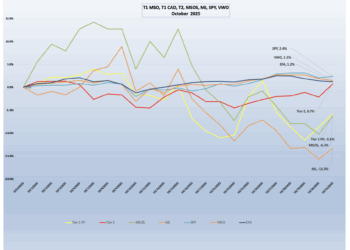Last year started with high hopes for some meaningful cannabis reform at the federal level but ended disappointingly with no significant action to help cannabis-related businesses. Rescheduling cannabis, allowing businesses to deduct general expenses from their federal taxes, hemp-derived cannabinoid regulation, and comprehensive banking reform were all left on the table for 2024.
The biggest news of 2023 was the Department of Health and Human Services’ recommendation to move cannabis to Schedule III on the Controlled Substances List. So far, the DEA, which ultimately makes the decision, has not tipped its hand.
In early December, HHS released more than 250 pages of mostly redacted documents to the DEA pertaining to the recommendation in response to a Freedom of Information Act request from attorney Matt Zorn of the blog On Drugs.
Zorn’s partner, attorney Shane Pennington, concluded that the HHS’ “shift in focus to marijuana’s abuse potential relative to other substances of abuse and its inclusion of a broader and more current data set strike me as moves that could easily support a conclusion that marijuana in fact has an abuse potential lower than substances in schedules I and II. And FDA’s recent interest in state data combined with the extraordinary amount of attention it has given to addressing whether marijuana has a currently accepted medical use convinces me that it has likely concluded that the answer to that question is yes.”
When it comes to banking, the SAFER Act still didn’t get a Senate floor vote despite strong bipartisan support in both houses and approval by the powerful Senate Committee on Banking, Housing and Urban Affairs in September. Senate Majority Leader Chuck Schumer still identified the legislation as a priority in 2024, but he acknowledged it “won’t be easy.”
Not only will it be a tough sell on Capitol Hill, but the big banks apparently aren’t quite on board either. At a Dec. 6 Senate Banking Committee hearing on the “Annual Oversight of Wall Street Firms,” none of the eight chief executives of the nation’s largest banks raised their hands when Sen. Raphael Warnock, D-Ga., asked them if they support the SAFER Banking Act.
Bank of America Chairman and CEO Brian Thomas Moynihan explained, “Senator, we all support the intent of it. The problem is it doesn’t fix the problem,” of which he did not elaborate.
Warnock said he supports SAFER but is “concerned about equity, and what we get in the process.”
When asked by Warnock, all the executives said they support the “intent” of equity banking standards in legislation, but qualified their position upon seeing the “actual words,” as JPMorgan Chase Chairman and CEO Jamie Dimon put it.
As Congress adjourned for the year, more than 20 federal cannabis bills were left idling, including the:
- VA Medical Cannabis Research Act
- Veterans Equal Access Act
- Small Business Tax Equity Act
- Clarifying Law Around Insurance of Marijuana Act
- Harnessing Opportunities by Pursuing Expungement Act
The only true high point in 2023 was President Joe Biden continuing to pardon Americans and legal residents who had prior marijuana possession convictions. On Dec. 22, he pardoned those with simple possession on federal property, which followed a more general pardon in October 2022.
No clarity on hemp products
Congress also didn’t act to clarify how hemp-derived cannabinoids, from intoxicating THC derivatives to more therapeutic CBD, should be regulated. State regulators who have been dealing with the problem of these products being sold to children and with no safety standards hoped legislators would address this accelerating market in the updated Farm Act. But instead, they put it off for another year.
Until then, federal courts look like they will decide the matter. Several states have taken to regulate this lucrative part of the hemp industry, and hemp companies have fought back. In Virginia, U.S. District Judge Leonie Brinkema ruled the state does have the right to limit the “total THC” in consumable products. In Arkansas, however, U.S. District Court Judge Billy Roy Wilson came to the opposite opinion and granted a preliminary injunction on the state’s ban on “synthetic” hemp-derived THC substances.
Both decisions have been appealed to the Fourth and Eighth Circuits, respectively.
Ohio latest state to legalize
As the federal government continues to dig its heels on cannabis legalization and regulation, 42 states, plus the District of Columbia and four U.S. territories, allow for some level of THC consumption beyond hemp-derived cannabinoids, including 24 states now permitting full adult use of cannabis.
Ohio is the latest state to legalize adult use, but it took a voter referendum to do it. In November, 57% of voters approved Issue 2. However, Republican state legislators who opposed legalization were quick to file bills that would significantly change the law.
At the moment, HB 354 reportedly has the most support. It would prohibit sharing, add a 10% tax on cultivators, change tax allocations, ban public smoking and restrict advertising. Lawmakers realized there was no rush to enact changes since it will take a while to get licensed cultivation and sales operating. In the meantime, Ohioans have no legal way to obtain non-medical cannabis other than growing it themselves — up to six plants per person to a maximum 12 per household.
Other states that legalized adult use in 2023 were Delaware and Minnesota, while Kentucky legalized a medical marijuana program. The U.S. Virgin Islands also legalized adult-use at the beginning of the year. Additionally, Maryland, Missouri and Connecticut launched their adult-use marketplaces.
According to the CRB Monitor database, Maryland has 155 active cannabis business licenses, with another 12 approved or pending. Missouri has 464 active licenses and one approved or pending. Connecticut has 658 active licenses, including 460 for senior managers. Five licenses are approved or pending.
Oklahoma rejects adult use, ramps up medical program enforcement
Oklahoma voters, however, rejected a ballot measure in March to move into adult use. An out-of-control medical-use market was largely to blame. Instead, a number of new laws were passed to increase law enforcement and regulatory oversight and begin clamping down on straw owners.
In the second half of the year, law enforcement, including the state attorney general, have been arresting people accused of being a front for illegal cultivation businesses, shutting down operations with untagged pot and selling over the legal limit, and even going after sign scofflaws.
Because of the heightened law enforcement, as well as increased fees and renewal requirements, the number of grower licenses plummeted by over 2,000 from Jan. 11 to Dec. 1, 2023. Dispensary licenses dropped by 257 to 2,502, and processor licenses fell by nearly 250 to 1,482 by Dec. 1, according to the Oklahoma Medical Marijuana Authority.
What to watch for in 2024
This year, the states to watch for legalization include Florida, Wisconsin, Pennsylvania and New Hampshire.
Wisconsin Democrats have been pushing to create a comprehensive adult-use program for years and introduced AB 506 in October, but the Republican-led majority won’t allow a hearing. Republicans prefer incremental reform, and on Dec. 22 introduced a decriminalization bill. AB 861 would reduce penalties for simple possession.
Pennsylvania, which already has a medicinal marijuana program, has a pending bill to legalize and tax adult use, overseen by a new Cannabis Regulatory Control Board.
Meanwhile, there was a lot of talk in New Hampshire about creating an adult-use program with state-operated stores. However, after months of meetings, a special commission adjourned without making any recommendations. But don’t be surprised if lawmakers continue to push for an adult-use marketplace as New Hampshire is completely surrounded by adult-use states that are collecting millions in tax dollars from recreational consumers.
Finally, in Florida, if a constitutional amendment to legalize adult use makes it to the ballot, there is a strong likelihood it will pass. Nearly seven out of 10 registered voters support it, according to a recent poll by the University of South Florida. The initiative, largely funded by multi-state operator Trulieve, is being challenged by State Attorney General Ashley Moody and other opponents. The State Supreme Court, which invalidated a legalization measure in 2022, heard oral arguments on the case in November.
Erin Moffet, spokeswoman for the Cannabis Financial Industry Group, predicts election-year politics could spur more change in 2024.
“What additional actions the [President Joe Biden] administration takes (or does not take) along with that schedule change will have a large impact on cannabis policy in the next administration and next Congress,” Moffet said in an email. “With it being an election year, we should see additional states establish or expand cannabis programs that give Congress even more of a need to act and will bring new supporters for action into the fold.”












